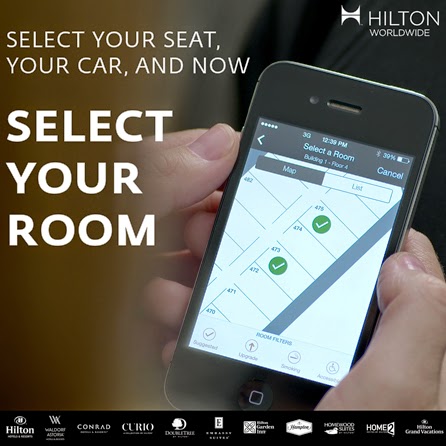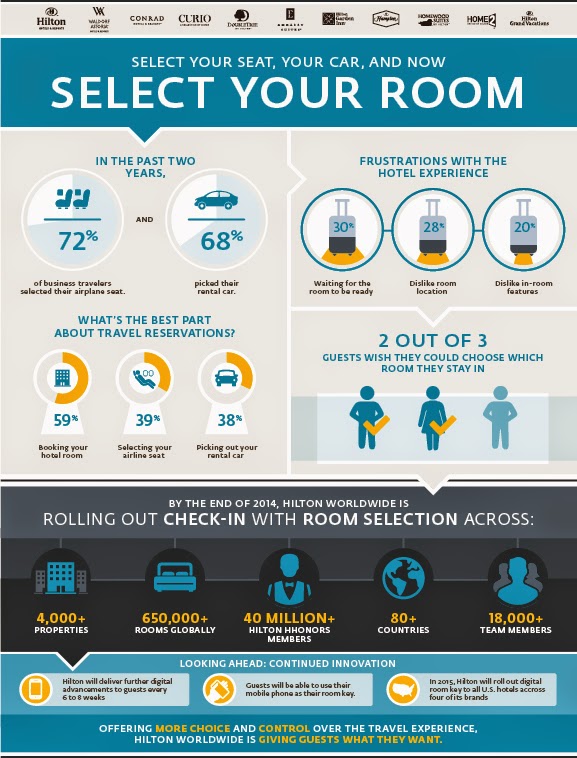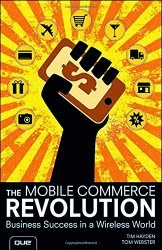Imagine the world in the near future when you get off your airplane and your phone beeps. It is your hotel room texting to tell you that it is clean and ready for you. You don’t need to go to the desk clerk because, like Uber, they have all the pertinent information on file. Last night you confirmed your reservation and picked your room and floor level. Your key has been downloaded to your phone. It is activated and will open the door. You just have to scan it like you did when you bought your Starbucks at the airport.
This world is at your fingertips today. At the end of 2014, 4,000 rooms can be accessed this way in eleven of Hilton’s properties.
Here is how the process will work according to Hilton:
Once a room is booked, the process for guests to manage their stay is simple:
Room selection: At 6 a.m. the day before a booked stay, Hilton HHonors members can sign into their account via their mobile device, tablet or computer to check-in and choose their preferred room through floor plan maps or lists populated from the hotel’s available inventory. Photos of rooms are also available to help with their selection. Hilton’s digital lobby function is updated in real-time, so guests no longer have to wait until they are physically in the hotel lobby to be assigned a room.
Special requests: After choosing a room, guests can further customize their stay at full-service hotels by purchasing upgrades and requesting specific amenities to be delivered to their room before arrival.
Room key: Next year, the company will begin to equip its hotel rooms with the technology for doors to be unlocked with guests’ smartphones, enabling them to go straight to their rooms upon arrival. For now, once they arrive on property, guests simply pick up their room key from the front desk, a streamlined process since the guest’s payment information and other details are already verified through their Hilton HHonors account prior to arrival.
Check-out: Guests can bypass the front desk upon departure as their bill will be automatically sent to their email address.
Tom Webster and Tim Hayden wrote a new book called The Mobile Commerce Revolution: Business Success in a Wireless World. I haven’t read it yet but my copy is on its way from Amazon. (I like to hold a book in my hand, call me old fashioned). I did hear Tom talking about the book on his podcast with Mark Schaefer called The Marketing Companion.
Did you know that Starbucks now does 11% of its commerce from a scanning app? Starbucks is no small business – he compared it to a small country and 11% of its revenue comes in through this device that didn’t exist just a few years ago.
Our cellphones are like new appendages that we humans have grown. They are always with us and can replace all other methods of connecting with businesses beyond the phone function.
I like to think of smart phones as computers with a phone app attached.
The ideas discussed in the podcast are really revolutionary in starting to see where the future is heading. Brands that are trying to understand how to create mobile apps are starting to look at UX which is tech speak for user experience. Mobile marketers are trying to figure out how the heck humans actually do stuff.
I like to think of smart phones as computers with a phone app attached.
The ideas discussed in the podcast are really revolutionary in starting to see where the future is heading. Brands that are trying to understand how to create mobile apps are starting to look at UX which is tech speak for user experience. Mobile marketers are trying to figure out how the heck humans actually do stuff.
You are in your car.
You want to order takeout from the local taco shop. Do you really want to sign in and enter your credit card data? How can big buttons and few taps on the screen get your special family order ready to be picked up pronto? Mobile marketing thinking is as important, perhaps more important than the technology. Tom and Tim provides ideas to get you moving in the direction of mobile.
#1 in #2
My favorite story of mobile marketing thinking comes from a chain of C-stores called Bunky’s that uses their super clean bathrooms as a point of differentiation. Tom described it as being #1 in #2. Their approach to mobile is centered on something others might not pay attention to but at the core, surprisingly clean bathrooms is part of their design thinking.
You want to order takeout from the local taco shop. Do you really want to sign in and enter your credit card data? How can big buttons and few taps on the screen get your special family order ready to be picked up pronto? Mobile marketing thinking is as important, perhaps more important than the technology. Tom and Tim provides ideas to get you moving in the direction of mobile.
#1 in #2
My favorite story of mobile marketing thinking comes from a chain of C-stores called Bunky’s that uses their super clean bathrooms as a point of differentiation. Tom described it as being #1 in #2. Their approach to mobile is centered on something others might not pay attention to but at the core, surprisingly clean bathrooms is part of their design thinking.
Make it easy. Make it friendly. Make it human.
How is your brand using mobile technology to take advantage of the revolution that is coming at you? I think my iPhone just became a little more important to me.
PS. Check out the special offer from Tom and Tim if you buy a bunch of their books. (I wonder if you have to use your phone to get the special deal?)
~~~~~~~~~~~~~~~~~~
Need help sorting through some mobile marketing thinking? Connect with me through Clarity and I’ll be happy to coach you to help you figure out the 411.







